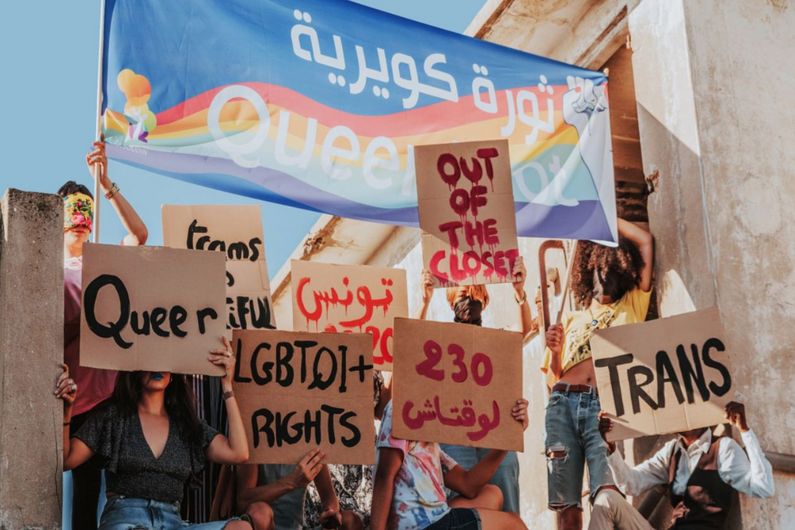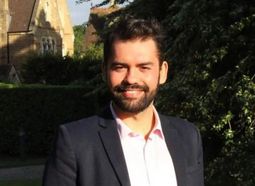LGBTQI+ rights in Tunisia: repressive laws and free speech
- UdeMNouvelles
01/18/2024
- Béatrice St-Cyr-Leroux
An UdeM sociology professor who studies issues facing LGBTQI+ communities in Tunisia highlights their challenges, hopes and struggles.
LGBTQI+ people in Tunisia find themselves in a paradoxical situation.
Several of their human-rights groups are officially recognized by the North African country's government, and are legally registered. But under Article 230 of Tunisia's penal code, same-sex relations are actually criminalized, with penalties of up to three years’ imprisonment.
How can this be?
Ahmed Hamila, an Université de Montréal sociology professor and expert on international migration, sex and gender issues and transnational solidarity, is exploring the issue.
Last September, with colleagues from Université libre de Bruxelles and the Institut de recherche sur le Maghreb contemporain in Tunis, as well as the Tunisian LGBTQI+ association Mawjoudin, Hamila organized Tunisia’s first international conference on LGBTQI+ issues.
Titled Solidarités transnationales et politiques queer mondiales (Transnational Solidarities and Global Queer Politics), the event brought together the academic community and grassroots activists.
Building knowledge, one video at a time
The result: five videos (in French) about issues of concern to LGBTQI+ communities in Tunisia and other countries in the Global South.
The videos deal in lay terms with themes such as building transnational LGBTQI+ solidarity today, the forms that takes, its limits, the relevance of unequal power relations stemming from colonial histories, and issues around borders and migration by LGBTQI+ people.
Available in French and Arabic, the videos were made to be accessible and widely distributed in Tunisia and among LGBTQI+ movements in the Francophonie and the Arab world at large.
“The popular narrative suggests that the situation of LGBTQI+ people in the Global South is uniform and catastrophic,” said Hamila. “We wanted these videos to show that the picture is more complex.
"There are laws against homosexuality and abuses against LGBTQI+ communities, but there are also many groups that are organizing and fighting for the rights of LGBTQI+ people. Too often, their resilience and their work is made invisible. We wanted to remedy this by shining a light on their expertise, experience and engagement.”
Complex and important issues
The topics discussed at the conference and in the videos reflect the diversity of LGBTQI+ experiences. One video looks back at forms of LGBTQI+ mobilization in Tunisia, particularly since the 2011 revolution. Another looks at “artivism,” artistic expression as a tool for raising awareness and encouraging social engagement.
In a video on migration and sexuality, Hamila draws on his knowledge of sexual orientation and gender identity in asylum policies to discuss how heteronormative and cisnormative violence, often exacerbated by political violence, dictatorship or war, can cause LGBTQI+ people to flee their homeland.
“While many countries, including Canada, recognize persecution based on sexual orientation and gender identity as grounds for granting refugee status, the migratory journeys of LGBTQI+ individuals are still often fraught with hardship,” he said. “And once they leave their countries, they often face new challenges in regularizing their immigration status and accessing social services.”
Questions for further research
Hamila believes it is particularly important to research these issues because Tunisia’s current president, Kais Saied, who was elected in 2019, is showing signs of clamping down on LGBTQI+ individuals rather than expanding freedoms.
In February 2023, Human Rights Watch reported that Tunisian government officials had illegally searched the phones of LGBTQI+ people, by force or under threat of violence, to collect—or even fabricate—personal information for arbitrary prosecutions.
Hamila is continuing his work with two recent grants. Funding from Canada's Social Sciences and Humanities Research Council will be used to study LGBTQI+ transnational solidarities from a decolonial perspective, while a grant from the Fonds de recherche du Québec - Société et Culture will be used to pursue his work on the migratory trajectories of LGBTQI+ people.














